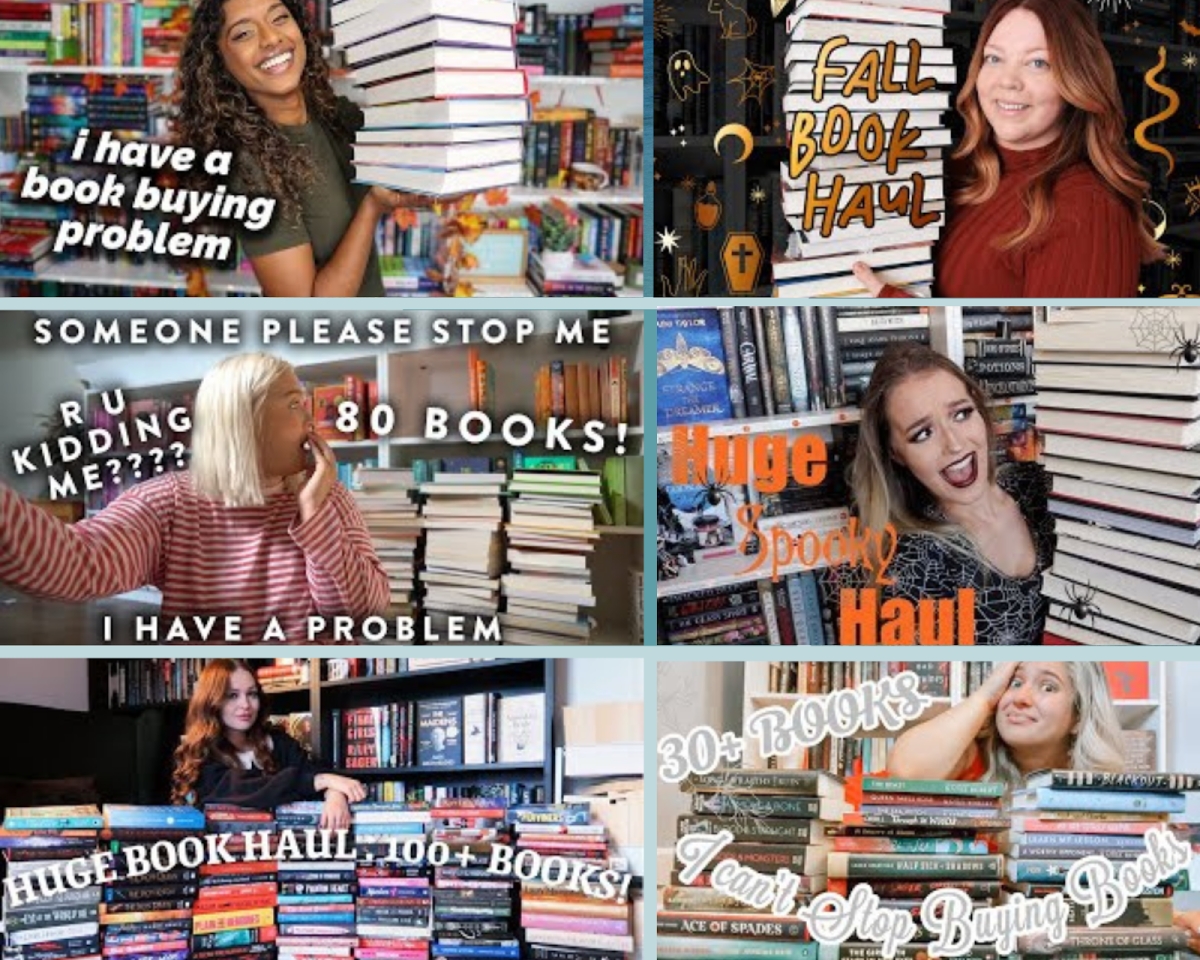“Reading is usually a pretty solitary, quiet event so getting to find a place where people are passionate and excited and wanting to talk about what they’ve read is what’s really magical about BookTube,” says Ariel Bissett, a prominent Canadian writer and BookTuber with 274K subscribers, in November 2021.
Booktube is, broadly speaking, a community of 16 to 25 yr olds, who come together on Youtube, as literary vloggers, sharing their passion for books through reading-related recreation. This not only includes book reviews but popular video formats such as read-along, bookshelf tours and hauls.
A book haul usually features a creator showcasing their book buying spree, done in one go. Popular in nature on beauty and fashion channels, these book haul videos also have quite a following. With clickbait titles like “Giant Book Haul!70+ books” or “I have a book buying problem that I don’t plan on fixing | a big book haul”. A video is often set against a backdrop of gigantic bookshelves spilling with hardcovers and one is made to believe that owning more books is the only means of occupying a legitimate seat in the community.
In 2015, Oscar Leal, a Mexican BookTuber called this out and proposed the hashtag #Prostitubers (“prostitutes + BookTubers”) to discuss how BookTubers were faking love and passion in exchange for free books. See an Indian rant here.
This exhibitionist side of BookTube is often a feature of how marketing is insidiously a norm on the platform. The term collaboration is thrown around to mask the commercial nature of the relationship between the creator and the brand sponsoring online content. In their video description, BookTubers usually add a link of books discussed in the video to online retail sites. Reading becomes a commodity, where creators not only suggest what books to read next but what book to buy next. It makes passive consumption a likely aspiration. This consumerism rests on the fallacy that economic growth is endless. A finite planet with finite resources cannot sustain endless growth, and pretending it does has led us to the climate crisis we see today.
BookTube, also known for its discussions on the young adult canon, seems to be falling short at CoP26, being held in early November, 2021. Rather than leading the way in compiling environmentally themed book reccos, it has been flooded with Halloween-themed haul videos. From cozy spooky books to read if you dare to Scary books to read. The boomers are making all the climate read reccos for kids and the young in November. This is when climate activism has gotten younger, creating online communities like never before and young reading has seen a Greta Thunberg effect since 2018.
While boomers place screens and books on opposing ends of the spectrum, the internet and social media have repeatedly offered possibilities for readers to forge virtual connections with each other. With deep structural transformation in the industry, the global publishing industry is constantly trying to find innovative means of connecting with younger readers. This is where BookTube works. Prominent figures in the community with high engagement and a large number of followers, or as the French sociologist Pierre Bordieu proposed, social capital, are often sought out to connect with active readers. These creators’ authority and opinions often influence their audiences’ purchasing habits, in contrast to conventional print media which is less likely to sway them. This social capital often translates into economic capital for both publishing houses who see a rise in spending on books and creators, who often receive a commission for books sold via them. Even just the high-frequency nature of purchase lauded in the community, can often burn a hole in viewers’ pockets, often discriminatory on grounds of disposable income and location (availability, shipping costs). Separating people into two camps; those who have and those who don’t.
Another important dimension of BookTube is the emphasis it places on the physicality of the books. While reading ranges from ebook to audiobook, Booktubers often incorporate only physical copies because they cater to the visual aspect of the platform. Catchier to hold up a book, flip through its pages, instead of a bland Kindle. However, the manufacture and distribution of a physical book comes at the expense of environmental degradation. Copies not sold by bookstores are often shredded down to pulp and mixed with industrial solvents and bleach for recycling purposes. This process is very energy-intensive and is fueled by coal and natural gas. Paper manufacturing accounts for the third-largest use of fossil fuels contributing to global warming.
Going digital and adopting e-books can stop this. The threshold at which books emit more GHG emissions than an e-reader is somewhere between 13 and 30 (average 20) university textbooks. For heavy readers, like BookTubers, physical copies can shoot up greenhouse gas emissions in contrast to investing in an e-reader. E-books and library subscriptions are often more inclusive and sustainable means of being a reader in today’s age.
So BookTubers, what’s December going to look like? The horror of more consumptive hauls? Or a cli-fi listicle by your own, for your own? What can possibly be a good look in the second year of a never-ending pandemic though? Any ideas?
Rishita Chaudhary is a second-year student studying political science, international relations, and media studies at Ashoka University.
We publish all articles under a Creative Commons Attribution-NoDerivatives license. This means any news organisation, blog, website, newspaper or newsletter can republish our pieces for free, provided they attribute the original source (OpenAxis).

